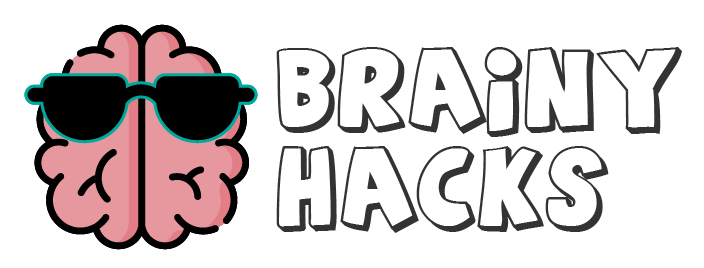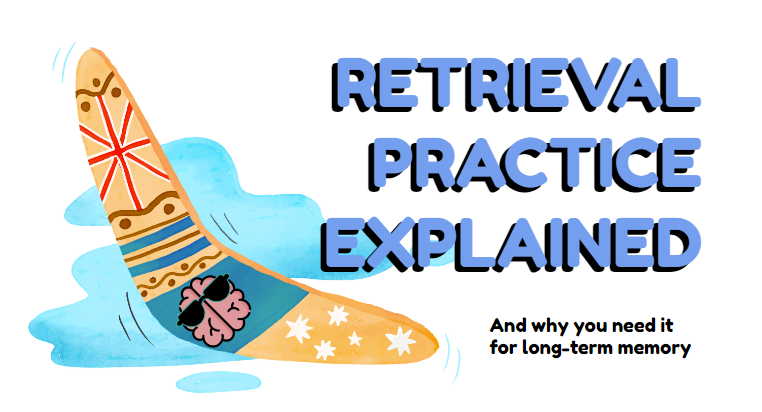One of the biggest issues when it comes to revision and long-term retention of information is that of retrieval. This is a fundamental mechanism for active recall from memory. As you’ll have learned in our various Study Techniques posts, like the Feynmann Technique, the Leitner System, and the SQR3 study method, there’s a lot of focus on practicing retrieval. But what is retrieval practice? How can we get better at it? We’ll answer these questions and more as we explore the science behind retrieval practice and discuss practical ways to incorporate it into your own study practices. Let’s get started!
What is Retrieval Practice?
Retrieval practice is a powerful learning strategy that involves actively recalling information from memory, rather than just passively re-reading or reviewing the material. Research has shown that retrieval practice results in better long-term retention of information, and deeper understanding of the material. Basically, it ensures that you keep the information in your brain for way longer than the immediate need of, say, a test or exam.
The basic idea behind retrieval practice is that the act of actively recalling information from memory strengthens the connections between neurons in the brain, making it easier to remember the information in the future. Remember, the more your brain uses a neural pathway, the more “reinforced” it becomes. Think of it a bit like a dirt road leading to a small village. You’re not going to be able to travel very fast on the bumpy road. But if that road becomes more popular and gets used a lot more, it’s going to be upgraded to a paved road – perhaps even a highway one day.
The same applies to learning and recall. The brain has trillions of neural pathways to maintain. Those that get used a lot will be maintained and perhaps even upgraded to a neural “highway”. While those that don’t get used very often are going to remain small country roads.
The Benefits of Retrieval Practice
One of the key benefits identified in numerous scientific studies is that it leads to better long-term retention of information. For example, a study by Roediger and Karpicke (2006) found that students who practiced retrieval by taking practice tests on material they had studied retained the material better than those who re-read it. Another study by Karpicke and Blunt (2011) found that retrieval practice leads to a “spacing effect,” where the more often students practice retrieval, the better they remember the material over time.
Retrieval practice also leads to a deeper understanding of the material. When we actively recall information from memory, we are forced to engage with the material deeper, which helps us understand the connections between different concepts and ideas. This is known as “elaborative rehearsal,” and it has been shown to lead to a better understanding and comprehension of the material.
Cognitive Scientist Dr. Pooja Agarwal explains this really well using a “use-it-or-lose-it” analogy. Take a few minutes to listen to her discuss desirable difficulties and how these aid in retrieval practice.
Examples of Retrieval Practice
Finally, we’re at the part that you’re probably the most interested in knowing about! There are several practical ways to incorporate retrieval practice into your own learning and studying. One of the most effective ways is to take practice quizzes or tests on the material you are studying.
This can be done using flashcards, online quizzes, or even by creating your own practice questions. Another effective strategy is to use “retrieval prompts,” which are questions or prompts that cue you to recall specific information from memory. As a side note, retrieval prompts are an important element for people with super memory and who use the memory palace technique (also known as the method of Loci) for remembering huge amounts of information – read more about it here.
Where were we… Retrieval practice can be done by writing out questions based on the material you are studying, or by using online tools like Quizlet’s “Learn” feature, which provides retrieval prompts to help you practice recalling information from memory.
Another effective strategy is to use “interleaved practice,” which involves mixing up the material you are studying and practicing retrieval across multiple subjects or topics. For example, instead of studying one chapter of a textbook at a time, you might study one section from three different chapters. This helps to keep the material fresh in your mind and makes it more difficult to slip into rote memorization and relying on recognition or recall simply.
What This Work Best For?
Retrieval practice works for a wide range of subjects, particularly math, science, history, and literature. Whatever it is that you need to revise, the key is to get the information out of your head as much as you focus on getting it into your head! That’s why the Feynmann learning technique is so powerful – the best way to learn is to teach. You’re essentially testing your own knowledge and recall by distilling your learning into well-synthesized explanations that you then teach to a willing audience (or a rubber duck!).
Whatever you choose to learn or revise, when it comes to retrieval practice, it is important to note that it is most effective when done regularly and over time. Simply taking one practice test or quiz is not likely to significantly impact your retention or understanding of the material. Instead, try to practice retrieval regularly, such as every day or every other day, using flashcards and the widely acclaimed Leitner technique. And make sure to space out the practice over a period of time to maximize the spacing effect.
In conclusion, retrieval practice is a powerful learning strategy that can lead to better long-term retention of information and deeper understanding of the material. By actively recalling information from memory, we are strengthening the connections between neurons in the brain and making it easier to remember the information in the future. Incorporating retrieval practice into your own learning and studying can be done through practice quizzes, retrieval prompts, interleaved practice and doing it regularly over time.
References:
https://www.retrievalpractice.org/
https://www.cultofpedagogy.com/retrieval-practice/
Image Sources:
Featured Image: Photo by Brett Jordan on Unsplash


4 thoughts on “Retrieval Practice Explained”
Comments are closed.